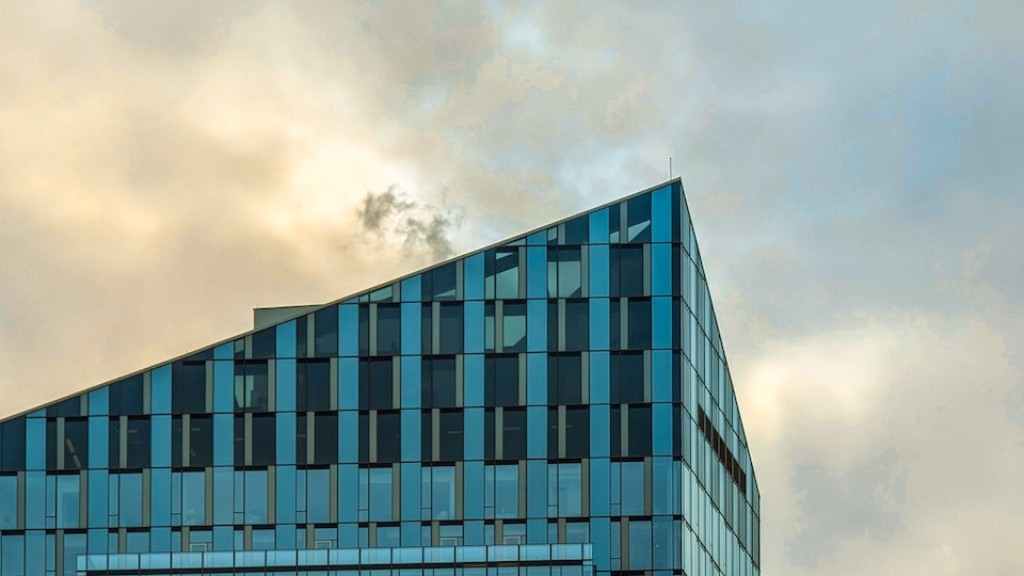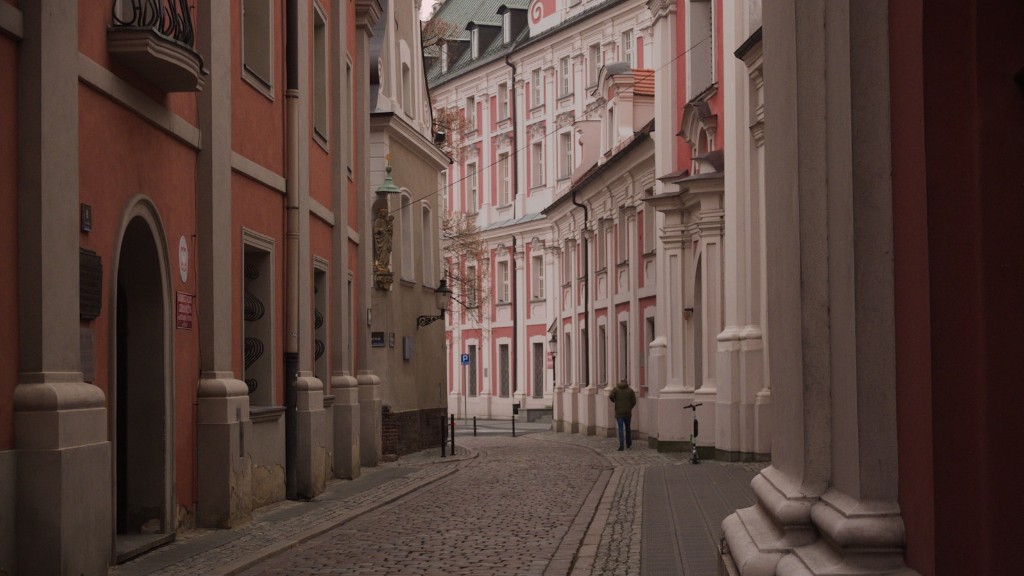During the Holocaust, Jews in Poland were subjected to mass destruction and persecution, as they were gradually stripped of their rights and rounded up for execution or sent off to concentration camps. The Nazi-imposed ghettos and their systematic extermination of Jews posed a number of additional restrictions on the Jewish community, including access to education. This article aims to provide an overview of the educational restrictions imposed on Jewish children in Poland during the Holocaust.
Before the war, Poland was home to one of the largest and most dynamic Jewish communities in Europe. This community was heavily represented in the educational and academic spheres. Jews made up nearly one third of the general student population, had a higher rate of student enrolment in secondary and higher education, and were heavily represented in student associations. However, the liberality of Jewish life in Poland drastically dwindled with the Nazi occupation in 1939.
The Nazis were determined to strip Jews of their rights, putting restrictions on their education and even their identities. Under Nazi rule, Jewish and Polish schools were forced to implement racial segregation, and the standard of education of Jewish schools deteriorated substantially. Jewish book stores were closed and books were banned, making it difficult to even find suitable reading or study material; what was available was censored and re-written to reflect Nazi ideology. Jewish teachers were ordered to shout Nazi slogans, while they saw their salaries drastically reduced, and many were ultimately fired. Jews were denied access to much of universities and professional organizations; indeed, the Nazis wanted to totally exclude Jews from education, higher or otherwise.
Jewish students were also subjected to a number of physical abuses. Various forms of torture, humiliation, and punishment could be found in schools. Severe beatings were commonplace, and sometimes the Nazis would conduct random searches of Jewish students. In addition, the curriculum slowly began to be changed to reflect Nazi ideology, as Jewish students were taught about the “evil” of their heritage. In some cases, Jewish children were expelled for refusing to comply with Nazi orders.
The Nazi presence in Poland resulted in the closure of many Jewish schools, which meant that many Jewish children did not have access to a formal education at all. Those who did attend school suffered numerous physical and psychological traumas. In some cases, children were subjected to horrific experiments or medical procedures, and even those who were not killed were subjected to horrible living conditions just to survive.
Aside from formal educational institutions, Jews in Poland had to rely on private education initiatives in order to maintain their traditional religious and cultural heritage. This included a series of underground networks which provided basic education and access to religious and cultural texts. The conditions were often very difficult, and the classrooms were often held in secret locations, but nevertheless, these efforts ensured that the Jewish culture was not forgotten.
Jewish Education After The Holocaust
After the Holocaust, Jews in Poland were able to reclaim their rights and move forward with the rebuilding of their community. This included the establishment of a number of new institutions dedicated to education. As was the case before World War II, Jews in Poland once again have access to a range of educational opportunities, including universities and other institutions of higher education. Several Jewish schools have been reopened, and Jewish communities have been able to preserve much of their religious and cultural heritage.
International organizations have also taken an active role in helping to educate and empower the Jewish community in Poland. Aid agencies such as the Anne Frank Foundation and the International School for Holocaust Studies have aided in the preservation and education of Jewish culture—as well as advocating for human rights and dignity—ensuring that the young generation is aware of the past but also equipped to work towards a more inclusive society.
Legacy Of Education During Holocaust in Poland
In light of the educational restrictions placed on Jews in Poland during the Holocaust, it is important to consider the long-term effects. The effects have been detrimental in many senses; some Jews experienced lasting physical and psychological trauma, while others struggled to reclaim their religious and cultural heritage in the aftermath of the Holocaust. Education was integral to this process, as it provided Jews with the opportunity to rebuild their identities and reintegrate into society.
The history of Jews in Poland—particularly during the Holocaust—has left an indelible mark in the nation’s history. After all, education is key to understanding the complexity of the Holocaust and the devastating effects it wrought on the Jewish people in Poland—and on the nation’s history as a whole. By furthering our understanding of the educational restrictions that Jews were forced to deal with during the Holocaust, we can better appreciate the resiliency of the Jewish people in overcoming such immense suffering.
Increasing Awareness of Holocaust
In order to continue this process of awareness and education, it is necessary to increase understanding of the effects of the Holocaust on Jews in Poland, including the educational restrictions imposed by the Nazi regime. According to some estimates, the majority of Holocaust victims were Jews—and it is essential that we recognize the unique importance of education in preserving Jewish culture and heritage. In addition, it is important to consider the ways in which education can be used to foster a more inclusive society and counter the hate and prejudice.
A plethora of organizations, such as the International School for Holocaust Studies and the Anne Frank Foundation, are dedicated to commemorating the Holocaust and raising awareness. Additionally, a number of websites, such as Yad Vashem, also feature educational resources and content related to the Holocaust, providing a great platform for learning and understanding.
Finally, it is important to reflect on the impact of the Holocaust on the educational opportunities for Jews in Poland. The Nazi regime sought to effectively wipe out a generation of Jewish people, and with it, the Jewish culture and heritage. Education was key to the survival and revival of the Jewish community, and today it stands as a testament to the resilience of the Jewish people in Poland.
Current Educational Opportunities for Jews in Poland
Today, education is still integral to the Jewish community in Poland. Jews in Poland are now able to access a range of educational opportunities, including universities and other educational institutions, as well as access to educational materials and resources. Moreover, Jewish schools have been reopened, allowing for the preservation and education of Jewish culture for the younger generations.
The International School for Holocaust Studies, the Anne Frank Foundation, and other organisations have dedicated themselves to providing educational opportunities and commemorating the Holocaust. Websites such as Yad Vashem contain a wealth of educational resources and content to help with learning about the Holocaust. Furthermore, a number of events are held to commemorate the Holocaust each year, such as Holocaust Memorial Day, which aims to remember the victims and reflect on the lessons that the Holocaust can teach.
In addition, the Holocaust has also become a topic of discussion and debate in Polish classrooms. Holocaust education is now mandatory in Polish high schools, and there are a range of educational initiatives that encourage students to think critically about the Holocaust and the effects it had on the Jewish people in Poland. By engaging with such initiatives, students are able to gain an appreciation of the horrors of the Holocaust and its lasting effects.
Final Reflection
The Nazi occupation of Poland, along with its accompanying educational restrictions, serves as a reminder of the horrors of the Holocaust. Jews faced a range of restrictions on their education during this period, including racial segregation in schools and the closure of Jewish schools and universities. The effects of these restrictions still linger today. However, in the aftermath of the Holocaust, the Jewish community in Poland has been able to reclaim its rights and rebuild, with education playing a key role in this process.
From the establishment of new educational institutions to the incorporation of Holocaust education in Polish classrooms, a number of initiatives have been set up to provide educational opportunities and to commemorate the horrors of the Holocaust. Education is key to understanding and overcoming the effects of the Holocaust, and it is important that we continue to educate future generations about the effects of this tragedy.




